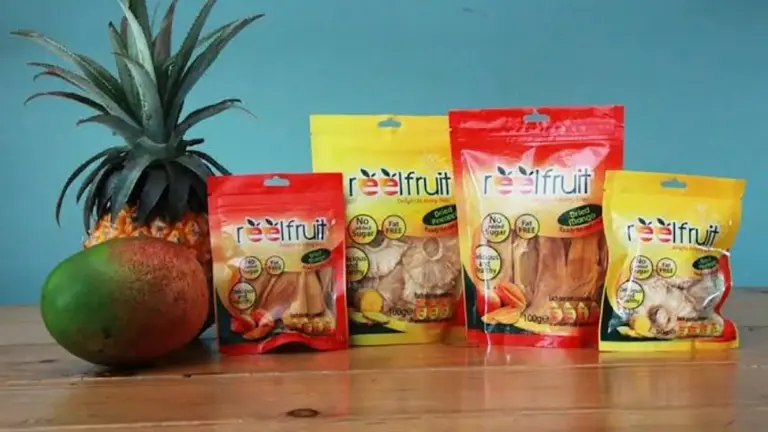There was a time when mangoes were fleeting treasures—golden, juicy, and gone too soon. Bananas blackened before they could be enjoyed. Pineapples rotted before they reached the market. In Nigeria’s sweltering heat, fresh fruit came and went like whispers in the wind, taking livelihoods with them.
But Affiong Williams saw what many others didn’t: the future of Nigerian fruit lay not in its short-lived freshness but in its endurance. The solution to Nigeria’s wasted harvests and lost income was preservation—an age-old practice with modern potential.
Thus, ReelFruit was born, a company that took mangoes, pineapples, coconuts, and transformed them into something more than seasonal delights. Williams turned them into a global promise, one that would carry Nigeria’s agricultural wealth far beyond its borders.
A $10 Billion Opportunity Hiding in Plain Sight
Nigeria’s fresh fruit market is estimated at $10 billion, yet much of the fruit on Nigerian shelves is imported. A nation blessed with fertile land and abundant sunshine was caught in a paradox—importing what it should have been exporting.
Williams didn’t just challenge this imbalance; she shattered it.
In 2012, after returning from South Africa, where she had spent years immersed in entrepreneurship, she bet on dried fruit—a category virtually unknown in Nigeria. It wasn’t an easy sell.
“Why would I eat dried mango when I can have it fresh?” people asked.
But Williams knew that this skepticism was the opportunity.
Starting small, she imported dried fruit from Ghana, branded and packaged it under ReelFruit, and convinced retailers to take a chance. Over time, Nigerians—once doubtful—began reaching for those brightly colored packets. Slowly but surely, ReelFruit found its foothold.
From Small Batches to Industrial Scale
ReelFruit was never meant to be just a boutique business. Williams had her sights set on industry-changing scale.
In 2023, ReelFruit launched an 800-tonne-per-year processing facility in Abeokuta, Ogun State—one of the largest of its kind in Nigeria.
What once relied on small kitchen dehydrators was now an industrial operation—not just feeding Nigeria but exporting its bounty to the world.
“This factory isn’t just bricks and mortar,” Williams said at its opening. “It embodies my unwavering belief in Nigeria’s agricultural and manufacturing potential.”
And she was right. The facility doesn’t just dry fruit; it creates jobs, supports farmers, and proves that Nigerian businesses aren’t just solving local problems—they are export-ready.
Cracking the U.S. Market
Had ReelFruit stopped at Nigerian supermarkets, it would have been a success. But Williams was thinking bigger.
The United States is the largest consumer market in the world, valued at $16 trillion. Nigeria, despite its 220 million people, is projected to reach just $3 trillion by 2030. The disparity is staggering—but also full of opportunity.
Williams saw an entry point: the Nigerian diaspora—millions longing for familiar tastes from home. But she knew that nostalgia alone wouldn’t sustain ReelFruit in the U.S. market.
Her products had to compete on quality, flavor, and branding—just like any other snack on American shelves. So, she invested in packaging, compliance, and marketing, ensuring that a ReelFruit packet could stand shoulder to shoulder with global brands.
The Future of Nigerian Exports
The world is waking up to Africa’s potential, but African entrepreneurs aren’t waiting for permission. They are building, scaling, and exporting on their terms.
ReelFruit is more than dried fruit—it is proof that Nigerian businesses can succeed globally.
Williams has done more than build a brand; she has redefined what is possible for agribusiness in Nigeria. And in doing so, she has set a new standard:
“Made in Nigeria” is not just a label. It is a statement—of quality, of ambition, and of a future where Nigerian products don’t just survive. They thrive, anywhere in the world.

